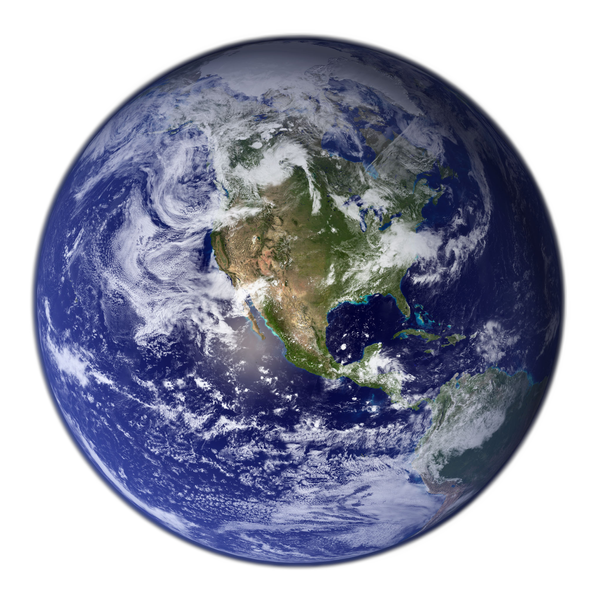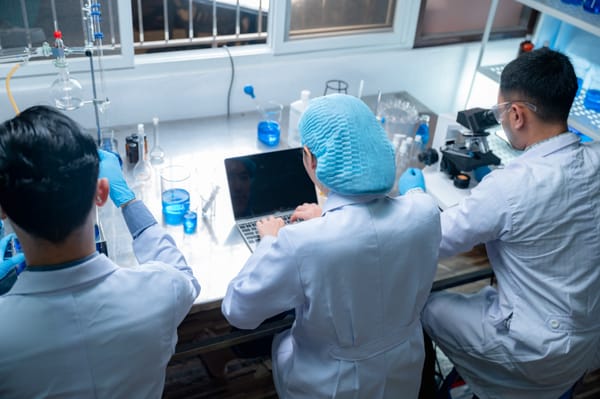Will humans be excluded from Biology?
As technology advances, there is growing potential to advance beyond the boundaries of our human bodies
It is no longer a surprise to claim that humans are detaching from nature. Forests are being replaced by farmlands, farmlands are being replaced by towns, and towns are being replaced by cities. Children can live perfectly well without seeing the wild, and businessmen, programmers, technicians, and even many biologists do not have to go into nature to do their jobs. When we say, “we are detaching from nature,” we mean that our homes, lifestyles, and cultures are more and more disconnected from the natural environment, though at least currently, not from our bodies. We share almost the same blood, muscles, circulatory system, and immune system as pigs, mice, dogs, and cows. We have the privilege to see the atoms, calculate the payoffs in the game theory and send robots to Mars, yet we suffer the same pain, sadness, and diseases as all our cousins in the Class Mammalia. As long as we have this mammal body, we are part of nature.
But we are challenging this connection. Advancements in medicine have made many fatal diseases such as diphtheria and malaria curable, and there are more and more breakthroughs in the treatment of cancer and HIV. It is foreseeable that medical advancement will eventually find ways to alleviate the harm of most diseases. In the 1900s, human life expectancy across most developing countries was less than 30 years; however, today, just a century later, new babies are expected to live longer than 75 years. We were already one of the longest-living mammals on earth. But we are still asking: can we live longer? Can we eventually defy some of the most fundamental biological laws (if there are any) like death?
We are already breaking the boundaries of biology. Every step in medical technology could be moving us further away from a “natural” human. Robotic arms, artificial skin, and the recent attempt at a pig heart transplant just show the potential for how much we can change ourselves. But even without these technologies, we are already stepping into a field untouched by other organisms. For example, we are more and more disconnected from natural selection. Certain previously fatal diseases will not prevent us from living healthy and having offspring, and inherited diseases will be greatly alleviated by treatments. Theoretically, without excluding harmful genes, the whole population could be more susceptible to diseases. The ability of the immune system could be greatly reduced, and people will have to take more and more medicine to survive. Many harmless bacteria nowadays could be dangerous to future humans without medical intervention. But what if one day (could be a few years later) ethics change, and germ-line gene editing becomes a reality? We could optimise our body’s genes and preserve good traits without undergoing mutation or natural selection.
We are experiencing a largely irreversible trend to detach from nature. Perhaps we are becoming a new form of being that is less and less determined by the environment but our own will
The concept of changing our genes is another huge breach of the foundations of biology. If there is truly something like the “selfish gene”, and the only meaning of “biology” is to pass down the genes, then what would be the “meaning” of humans if we start to change our genes according to our favour?
Biology made us, but biology is increasingly becoming our constraint. Our bodies are optimised to utilise a limited amount of resources. More than ever before, we are suffering from an increasing number of diseases brought on by obesity, sedentary lifestyles, high fat diets, and high sugar intake. More resources are supplied to our body than our body can use—such biological limitations constrain our ability to excel beyond our tools, tools such as computers. Within a few decades, humans developed supercomputers to calculate the weather around the globe, and machine learning to handle big data. But relatively slow development is seen in the medical field compared with information technology. The medical industry is constantly trying to develop products that adapt to the human body, but it is much more difficult to let the human body adapt to these products. The rate of natural development and evolution can hardly keep up with the development rate in human industries.
We are experiencing a largely irreversible trend to detach from nature. Perhaps we are becoming a new form of being that is less and less determined by the environment but our own will. When we get used to replacing our hearts, hands, and legs with machines, using assistive technology to help us think, would we start to think "why do we even need the body at all?" We are more eager to preserve our thoughts than preserve our genes, so why should we carry heavy reproductive organs that eat our energy?
If someday we migrate to some other galaxies, we may have to seriously think of a complete split away from biology. One option is to live as files in the disk that can independently think, and more options will certainly become available as science and technology advance. But no matter whether humans can exist to that day or not, we are growing more and more different from our definition of “biology”. Perhaps in the next several hundred years, there could be a new domain of life that sets itself apart from eukaryotes, bacteria, and archaea if we still recognise ourselves as part of Biology. But perhaps we will not.









